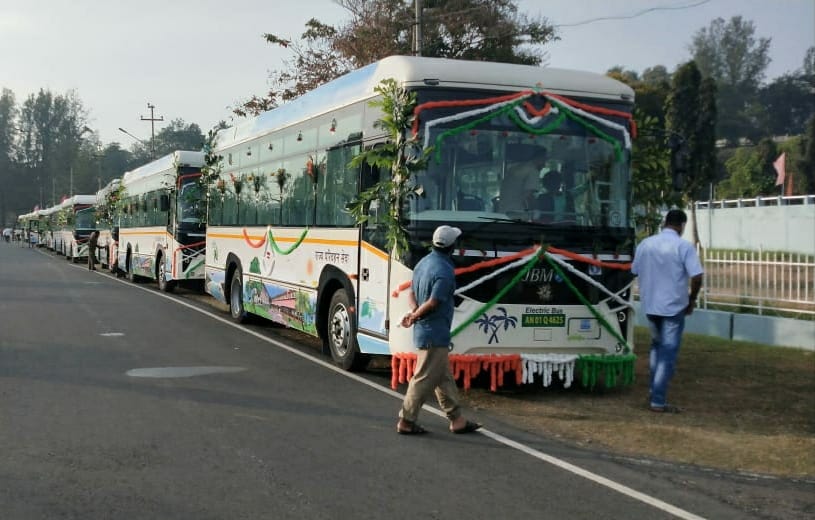Fourth serosurvey: 67% developed antibodies to COVID-19
As per the fourth serosurvey results shared by ICMR, 67.6% of the population above six years were found to have antibodies to COVID-19. Which still leaves one-third of the population vulnerable to COVID-19. The health ministry has stressed that the results, though encouraging, should not lead to complacency and COVID Appropriate Behavior shall be followed at all times. The survey also revealed that 85% of health workers have been vaccinated.
The survey covered 28,975 respondents from the general population and 7,252 healthcare workers. It was conducted across 70 districts in June-July and included children in the age 6-17 age group.
Source: Livemint
Delta remains the dominant strain, hospitalization and fatality reduced after vaccination
The Delta variant remains the dominant strain in new cases being reported across the country, as revealed from genome sequencing of recent samples. The evidence also indicates that vaccination offers better protection against the virus, said Indian SARS-CoV2 Genomics Consortium (INSACOG). The Delta variant has high transmissibility and is more virulent. A majority of clinical cases from breakthrough infection are due to this variant, the Consortium adds. However, only 0.98% of such cases needed hospitalisation and fatality rate was pegged at just 0.4%. INSACOG has also stressed the need to follow COVID Appropriate Behavior.
Source: The Times of India
Read more: Delta Plus vs Delta variant: How much do we know about these ‘Variants of Concern’?
Graded opening of schools is advisable, third wave might appear in Sept-Oct: AIIMS Chief
Director of AIIMS Delhi Dr Randeep Guleria, in a recent interview with CNN-News18, said that a graded opening of schools is needed to resume offline education. Opening schools in areas having less than 5% positivity rate, applying alternate days of school for different classes and planning more outdoor activities are some key ways to avoid crowding and check spread of infection. Dr Guleria also said that there is a lot of scope for developing local innovations to ensure COVID-appropriate behaviour in schools. Vaccine for children is also expected to arrive by September, making graded opening of schools possible.
On the timing of the third wave, Dr Guleria said that with restrictions being eased and people not following COVID-appropriate behaviour, there might be an increase in cases in the next few weeks. Though cases have come down from four lakh a day to 30,000, this is still very high compared to the first wave and indicates that the second wave has still not subsided. The number might see a surge by Sept-Oct, said Dr Guleria.
Source: News 18
Country aims at 100% clean energy use for public transport and logistics: Union Road Transport Minister

Addressing a virtual event, Union Minister for Road Transport and Highways Nitin Gadkari informed that India is planning to shift its public transport and logistic systems to 100% clean energy. The ministry is also exploring a number of alternative mobility solutions like cable car, ropeway etc. According to Gadkari, the country is well on the track to achieving its target of 175 GW installed renewable power by 2022 and is expected to cross the target of 450 GW renewable power by 2030.
Source: Times Now News
Read more: Why don’t we see electric buses on Chennai roads?
Promise made by CM Kejriwal judicially enforceable: Delhi HC
In a significant development, the Delhi High Court ruled that any promise made by the Delhi Chief Minister amounts to be an enforceable promise and that the implementation of the same has to be considered by the state. The court made these remarks while hearing a petition pertaining to an announcement made by CM Arvind Kejriwal during the lockdown last year that the state would pay the rent if any tenant is unable to pay the same.
Read more: New rental law could leave up to 2.5 million Mumbaikars homeless
The HC observed that good governance means promises made to citizens are kept and not broken without valid or justifiable reasons. The court went on to say that such statements are governed by the legal doctrines of legitimate expectations and promissory estoppel, a legal principle that makes such promises judicially enforceable.
Source: The Indian Express
Also read:
- Bengaluru Buzz: Commercial Street gets new look | BBMP plans more hospitals | Post-lockdown challenges
- Chennai Buzz: 15% of eligible population vaccinated | New bus routes introduced | Metro undertakes Central beautification work
- Mumbai Buzz: Rivers flood the city | 19 people die in landslide | Housing sales remain strong
[Compiled by Rishabh Shrivastava]